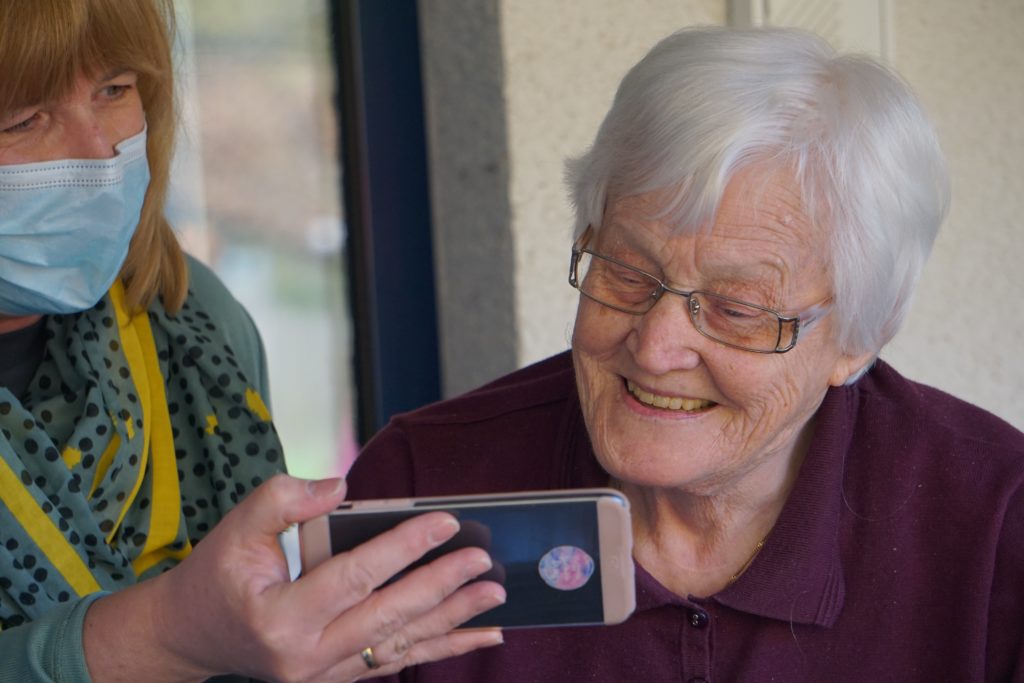Additional Guidance for Communicating with a Loved One in a Facility During COVID-19

The COVID-19 pandemic is creating additional challenges for people with FTD in residential care, and for their families at home. Recently, Dr. Carmela Tartaglia of the University of Toronto published a letter on AFTD’s website highlighting ways families can navigate FTD long-term care during the pandemic.
Following are tips from AFTD meant to augment and expand upon her expert guidance, including ways to keep in contact with loved ones in facility care and working with staff to help all parties cope with the changes and restrictions brought upon by COVID-19.
- When communicating with a loved one, whether via phone, window visit, or some form of virtual communication, try to keep conversations upbeat by talking about things your loved one enjoys or by sharing new and happy experiences. Always try to give a positive response: for example, you can say “I can’t wait to see you again” instead of “We can’t see you for a while.” Do not focus or dwell on coronavirus-related restrictions, nor feelings of frustration, anger, or disappointment.
- Talk to the facility about their protocols for sending and receiving mail. If they have suspended letters and packages during this time, ask if you can send email correspondence to be printed out and shared. If the facility is still receiving mail, consider sending “comfort items” that will help to soothe the person diagnosed when they feel anxious or upset, which will benefit both your loved one and overwhelmed facility staff.
- As Dr. Tartaglia noted, the pandemic has exacerbated staff turnover at many facilities. It can help to identify a consistent staff member as a primary point of contact to ease communication challenges. As facilities learn to adapt to the ever-evolving conditions, there may be frequent changes to their protocols and policies. Ask for updates to stay as informed as possible.
- Ask the facility what you can do to support staff, especially if your loved one is acting inappropriately or impulsively. For example, you can provide a “fact sheet” to be posted to their door that lists their likes and dislikes and gives simple tips for interactions that will help to alleviate the stress of unfamiliar care staff. You may have to be more creative and/or flexible than usual in your support of care staff in order to ensure the highest quality care possible under the difficult current circumstances. Simply showing your appreciation for what care staff do can help boost their morale at a time when they need it most.
- The pandemic, and its effect on long-term care facilities’ usual operating procedures, continues to evolve by the day. During tumultuous times like these, concrete data is never more important — the federal Centers for Medicare & Medicaid Services frequently updates COVID-19 nursing home data from across the country. Additionally, the AARP has compiled a helpful FAQ about nursing homes and COVID-19.
Click here to read Dr. Carmela Tartaglia’s suggestions on how to manage long-term care during the pandemic.
Photo by Georg Arthur Pflueger on Unsplash
By Category
Our Newsletters
Stay Informed
Sign up now and stay on top of the latest with our newsletter, event alerts, and more…
